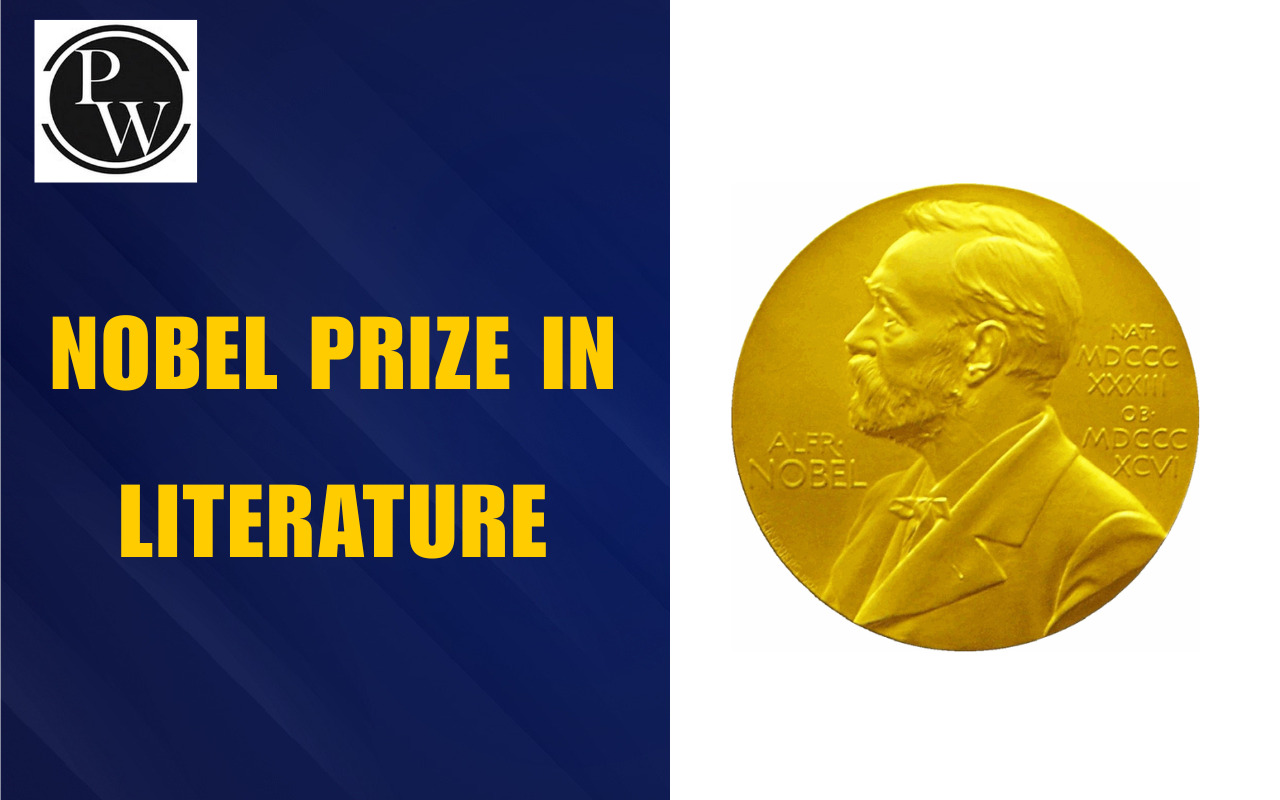

International Treaties and Agreements play an important role in boosting cooperation, addressing global challenges, and upholding peace among nations. These agreements act as the legal framework for managing relations between countries and are essential in handling matters like security, environment, human rights, and trade. In this Informative guide, we will explore some of the most important international treaties , provide a list of international treaties and agreements , and specifically look at the list of conventions agreements ratified by India .
Understanding International Treaties and Agreements
An international treaty is a formal and legally binding agreement that manages between sovereign states or international organizations. They are also known as accords , protocols , covenants , or conventions , depending on their purpose and content. Treaties can be bilateral (between two countries) or multilateral (among multiple countries) and are governed by principles laid out in the Vienna Convention on the Law of Treaties (1969).
Treaties can address a wide range of issues which include peace agreements, trade, human rights, and environmental conservation. International treaties and agreements create legally binding obligations for the signatory nations, encouraging them to uphold shared values and commit to global standards.
Whereas Agreements are formal, negotiated commitments between two or more parties, often countries or organizations, which are established to address shared goals or issues. Unlike treaties, agreements may be legally binding or non-binding and can cover various areas like trade, environmental protection, and human rights. These documents encourage cooperation, setting terms that guide actions and promote mutual understanding among the involved parties.
Definitions and Differences
| Term | Definition | Difference | Binding | Ratification |
| Agreements | A broad arrangement between two or more parties, which may be legally binding or non-binding. | Includes treaties, MoUs, or contracts; focuses on cooperation. | Binding if legally formalized | May or may not require ratification. |
| Charters | Formal documents outlining the purpose, rights, and responsibilities of an institution or organization. | Establishes institutions or foundational principles (e.g., UN Charter). | Binding for members | Generally requires ratification by signatories. |
| Conventions | International agreements address specific issues, often under international organizations (e.g., Geneva Conventions). | Aimed for broad, global adherence on specific issues. | Binding upon ratification | Requires formal ratification to be binding. |
| Declarations | Non-binding statements outlining principles or intentions are usually adopted at global summits (e.g., the Universal Declaration of Human Rights). | Expresses political commitment rather than legal obligation. | Non-binding unless made law or treaty | Does not require ratification. |
| Memoranda of Understanding (MoUs) | Formal agreements outlining mutual intentions, generally non-binding, focused on cooperation between parties. | Non-legally enforceable; based on mutual understanding. | Generally non-binding unless specified | Ratification is not required. |
| Protocols | Supplements or amendments to existing treaties, providing additional details or updates (e.g., Kyoto Protocol). | Adds specificity or updates to existing treaties. | Binding upon ratification | Requires ratification by parties. |
| Treaties | Legally binding agreements between sovereign states or organizations, governed by international law. | Explicitly binding with clear legal commitments. | Legally binding upon ratification | Formal ratification is required by the involved parties. |
| Signatories and Parties | Signatories: Entities that sign but have not ratified an agreement, indicating intent. Parties: Entities that have ratified, making it binding. |
List of International Treaties and Conventions
There is a huge list of international treaties and agreements that shape global governance across various domains. Here are some of the notable treaties organized by their focus areas:
| List of International Treaties and Conventions | ||
| Year | Name | Description |
| 1904 | Treaty of Lhasa | Agreement between the British Empire and Tibet to secure British influence in Tibet. |
| 1907 | Second Hague Conference | Established regulations on war conduct, expanding the Hague Conventions. |
| 1912 | International Opium Convention | First international drug control treaty, aimed at regulating the opium trade. |
| 1916 | Sykes-Picot Agreement | A secret agreement between Britain and France to divide Ottoman territories in the Middle East. |
| 1918 | Treaty of Brest-Litovsk | The peace treaty between Soviet Russia and the Central Powers ended Russia’s involvement in WWI. |
| 1919 | Treaty of Versailles | Ended WWI; imposed heavy reparations on Germany and led to the League of Nations' formation. |
| 1928 | Kellogg-Briand Pact | Agreement to renounce war as an instrument of national policy; signed by major world powers. |
| 1945 | United Nations Charter | Established the United Nations; a foundational treaty promoting peace, security, and cooperation. |
| 1949 | Geneva Conventions (Revised) | Set rules for humane treatment of wartime prisoners and civilians; expanded humanitarian laws. |
| 1959 | Antarctic Treaty | Designated Antarctica as a scientific preserve, banning military activity. |
| 1968 | Nuclear Non-Proliferation Treaty (NPT) | Aims to prevent the spread of nuclear weapons and promote peaceful nuclear energy. |
| 1982 | United Nations Convention on the Law of the Sea (UNCLOS) | Defines nations' rights and responsibilities regarding marine resources and environmental protection. |
| 1987 | Montreal Protocol | Aims to reduce substances that deplete the ozone layer, a key environmental protection treaty. |
| 1992 | Convention on Biological Diversity | Promotes sustainable management of biodiversity and equitable sharing of biological resources. |
| 1997 | Kyoto Protocol | Sets binding obligations for industrialized countries to reduce greenhouse gas emissions. |
| 1998 | Rome Statute of the International Criminal Court | Established the International Criminal Court to prosecute war crimes, genocide, and crimes against humanity. |
| 1919 | Treaty of Versailles | Ended WWI; imposed heavy reparations on Germany, leading to geopolitical changes. |
| 1920 | Treaty of Trianon | Redrew boundaries in Central Europe; significant for understanding European history post-WWI. |
| 1928 | Kellogg-Briand Pact | An international agreement attempting to prevent war as a means of resolving disputes. |
| 1945 | United Nations Charter | Established the United Nations, aimed at preventing future wars and fostering cooperation. |
| 1947 | General Agreement on Tariffs and Trade (GATT) | Predecessor to WTO, significant in understanding international trade agreements. |
| 1949 | North Atlantic Treaty (NATO) | Formed a military alliance between North American and European nations to counter Soviet influence. |
| 1951 | Genocide Convention | Defined genocide in legal terms and committed signatories to preventing and punishing it. |
| 1959 | Antarctic Treaty System | Established Antarctica as a scientific preserve, and banned military activity on the continent. |
| 1960 | Indus Waters Treaty | India-Pakistan treaty is significant for regional water-sharing agreements. |
| 1968 | Treaty on the Non-Proliferation of Nuclear Weapons (NPT) | Aims to prevent the spread of nuclear weapons and promote disarmament. |
| 1971 | Ramsar Convention | International treaty for the conservation of wetlands, relevant to environmental protection. |
| 1972 | Biological Weapons Convention | Prohibits the development, production, and stockpiling of biological weapons. |
| 1985 | Schengen Agreement | Removed border controls within Europe, establishing free movement of people within the EU. |
| 1987 | Intermediate-Range Nuclear Forces Treaty (INF) | US-Soviet treaty to eliminate intermediate-range nuclear and conventional missiles. |
| 1989 | Montreal Protocol | A global agreement to protect the ozone layer by phasing out substances causing ozone depletion. |
| 1992 | United Nations Framework Convention on Climate Change (UNFCCC) | Established framework for addressing climate change; led to the Kyoto Protocol and Paris Agreement. |
| 1994 | North American Free Trade Agreement (NAFTA) | Established a trilateral trade bloc between the US, Canada, and Mexico. |
| 1997 | Kyoto Protocol | International treaty aimed at reducing greenhouse gas emissions; foundational for climate policy. |
| 2000 | United Nations Convention Against Transnational Organized Crime | Combats organized crime, including human trafficking and smuggling. |
| 2000 | Cotonou Agreement | Economic and political relations between EU and ACP countries. |
| 2001 | Treaty of Nice | EU institutional reforms, laying the groundwork for further expansion. |
| 2001 | Convention on Cybercrime | First international treaty on internet and computer crime. |
| 2002 | ASEAN Agreement on Transboundary Haze Pollution | Addressing air pollution affecting Southeast Asia. |
| 2003 | WHO Framework Convention on Tobacco Control | Global response to the tobacco epidemic. |
| 2005 | Energy Community Treaty | Integrates the EU energy market with South East Europe. |
| 2007 | Treaty of Lisbon | Major reforms to EU structures and decision-making processes. |
| 2008 | UNASUR Constitutive Treaty | Formation of the Union of South American Nations. |
| 2010 | Nagoya Protocol | Aims at fair sharing of genetic resources’ benefits. |
| 2015 | Paris Agreement | Landmark international accord to combat climate change. |
| 2017 | Treaty on the Prohibition of Nuclear Weapons | Legally binding prohibition of nuclear weapons. |
| 2018 | Prespa Agreement | Resolved the naming dispute between Greece and North Macedonia. |
| 2019 | Treaty of Aachen | Strengthening Franco-German cooperation in EU policies. |
| 2020 | Agreement for Bringing Peace to Afghanistan | The peace agreement between the U.S. and the Taliban. |
| 2022 | Ethiopia–Tigray Peace Agreement | Ended conflict in Ethiopia’s Tigray region. |
| 2023 | Treaty of Jeddah (2023) | Facilitated a week-long ceasefire in the 2023 Sudan conflict but expired two days after the signing due to a sudden surge in hostilities. |
List of Conventions Agreements Ratified by India
India is an active participant in international treaties and agreements , particularly in areas such as human rights, environmental conservation, and trade. Here is a list of conventions agreements ratified by India :
| Sl. No. | Name of the Convention/Treaty/Agreement | Date of Accession/Ratification | Entry into Force | Significance and Focus |
| 1 | WIPO Convention | January 31, 1975 | May 1, 1975 | Establishes India’s membership in WIPO, enhancing global intellectual property cooperation. |
| 2 | Paris Convention for the Protection of Industrial Property | September 7, 1998 | December 7, 1998 | Protects industrial property (patents, trademarks) internationally, promoting innovation and trade. |
| 3 | Berne Convention for the Protection of Literary and Artistic Works | April 23, 1928 | April 1, 1928 | Ensures copyright protection for creators, facilitating the global exchange of creative works. |
| 4 | Budapest Treaty on the International Recognition of the Deposit of Microorganisms | September 17, 2001 | December 17, 2001 | Simplifies patenting processes for microorganisms, boosting biotechnological research and innovation. |
| 5 | Nairobi Treaty on the Protection of the Olympic Symbol | September 19, 1983 | October 19, 1983 | Protects the Olympic symbol to preserve its integrity and prevent unauthorized commercial use. |
| 6 | Patent Cooperation Treaty (PCT) | September 7, 1998 | December 7, 1998 | Streamlines the international patent application process, supporting Indian inventors in global markets. |
| 7 | Convention for the Protection of Producers of Phonograms | November 1, 1974 | February 12, 1975 | Protects against unauthorized duplication of phonograms, aiding Indian producers and artists. |
| 8 | Protocol Relating to the Madrid Agreement | April 8, 2013 | July 8, 2013 | Facilitates international registration of trademarks, benefiting Indian brands abroad. |
| 9 | Marrakesh Treaty to Facilitate Access to Published Works for the Blind | June 24, 2014 | September 30, 2016 | Improves access to published works for visually impaired individuals, promoting inclusivity. |
| 10 | WIPO Copyright Treaty | September 25, 2018 | December 25, 2018 | Provides copyright protections in the digital environment, supporting Indian creators online. |
| 11 | WIPO Performances and Phonograms Treaty | September 25, 2018 | December 25, 2018 | Protects performances and phonograms in digital media, benefiting Indian musicians and performers. |
| 12 | Nice Agreement concerning the International Classification of Goods and Services | June 7, 2019 | September 7, 2019 | Standardizes trademark classification, aiding Indian businesses in global trademark registration. |
| 13 | Locarno Agreement establishing an International Classification for Industrial Designs | June 7, 2019 | September 7, 2019 | Facilitates the classification of industrial designs, promoting Indian industrial creativity abroad. |
| 14 | Vienna Agreement establishing an International Classification of Figurative Elements | June 7, 2019 | September 7, 2019 | Standardizes figurative element classification in trademarks, supporting India’s IP protection globally. |
List of United Nations Conventions, Protocols & Agreements India Has Not Signed, or Signed But Not Ratified
India, while actively participating in many international treaties and agreements, has chosen not to sign or ratify certain United Nations conventions and protocols. This is often due to specific national interests, policy considerations, or the potential impact on domestic laws.
|
UN Conventions India Has Not Signed or Ratified |
|||
| SI No. | Name of the Convention | Status of Signature | Status of Ratification |
| 1 | Convention on Consent to Marriage, Minimum Age for Marriage and Registration of Marriages. New York, 10 December 1962 | Not Signed | |
| 2 | Convention on the International Right of Correction. New York, 31 March 1953 | Not Signed | |
| 3 | International Convention Against the Recruitment, Use, Financing and Training of Mercenaries. New York, 4 December 1989 | Not Signed | |
| 4 | Convention on the Safety of United Nations and Associated Personnel. New York, 9 December 1994 | Not Signed | |
| 5 | Optional Protocol to the Convention on the Safety of United Nations and Associated Personnel. New York, 8 December 2005 | Not Signed | |
| 6 | Rome Statute of the International Criminal Court. Rome, 17 July 1998 | Not Signed | |
| 7 | Amendment to Article 8 of the Rome Statute of the International Criminal Court. Kampala, 10 June 2010 | Not Signed | |
| 8 | Amendments on the crime of aggression to the Rome Statute of the International Criminal Court. Kampala, 11 June 2010 | Not Signed | |
| 9 | Amendment to article 124 of the Rome Statute of the International Criminal Court. The Hague, 26 November 2015 | Not Signed | |
| 10 | Agreement on the Privileges and Immunities of the International Criminal Court. New York, 9 September 2002 | Not Signed | |
| 11 | International Agreement on Olive Oil, 1956. Geneva, 17 October 1955, and New York, 15 November 1955 | Not Signed | |
| 12 | Protocol amending the International Agreement on Olive Oil, 1956. Geneva, 31 March 1958 and 3 April 1958 | Not Signed | |
| 13 | Convention on the Nationality of Married Women. New York, 20 February 1957 | Signed on 15 May 1957 | Not Ratified |
| 14 | United Nations Convention on Jurisdictional Immunities of States and Their Property. New York, 2 December 2004 | Signed on 12 January 2007 | Not Ratified |
| 15 | Convention against Torture and Other Cruel, Inhuman or Degrading Treatment or Punishment. New York, 10 December 1984 | Signed on 14 October 1997 | Not Ratified |
| 16 | International Convention for the Protection of All Persons from Enforced Disappearance. New York, 20 December 2006 | Signed on 6 February 2007 | Not Ratified |
| 17 | Single Convention on Narcotic Drugs, 1961, as amended by the Protocol amending the Single Convention on Narcotic Drugs, 1961. New York, 8 August 1975 | Signed on 14 December 1978 | Not Ratified |
| 18 | International Convention for the Protection of Performers, Producers of Phonograms and Broadcasting Organisations. Rome, 26 October 1961 | Signed on 26 October 1961 | Not Ratified |
| 19 | Agreement governing the Activities of States on the Moon and Other Celestial Bodies. New York, 5 December 1979 | Signed on 18 January 1982 | Not Ratified |
| 20 | Minamata Convention on Mercury. Kumamoto, 10 October 2013 | Signed on 30 September 2014 | Not Ratified |
Source: Ministry of External Affairs
To get more information on the List of United Nations Conventions Protocols & Agreements India has not Signed, or Signed but not Ratified, click on the link below:
Conclusion
International treaties and agreements are foundational elements of global governance, bringing countries together to solve complex challenges and promote shared values. From human rights to environmental protection, these treaties have shaped and continue to shape modern international relations. For India, the list of conventions agreements ratified by India reflects its commitment to upholding global standards across various domains.
Ready to take the next step in your UPSC journey? Enroll in our comprehensive course today and avail right guidance, essential resources, and personalized support to qualify for your exam
| UPSC Related Articles | ||
| UPSC Prelims Questions | NCERT for UPSC Exam 2025 | UPSC Mains Admit Card |
| UPSC Mains Exam Pattern | UPSC Scholarship Test | UPSC Result |
International treaties and agreements FAQs
Q1. What are some important international treaties?
Q.2 Can you give a list of international treaties and conventions?
Q3. Has India ratified the Paris Agreement?
Q4. What is the importance of a list of conventions agreements ratified by India?
Q5. Why hasn’t India signed the Comprehensive Nuclear Test Ban Treaty (CTBT)?












